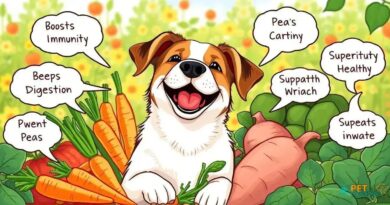What is alternative dog diets
What is Alternative Dog Diets?
Alternative dog diets refer to various feeding practices that deviate from traditional commercial dog food. These diets can include raw food, homemade meals, and specialized nutrition plans designed to meet specific health needs. Pet owners are increasingly exploring these options to provide their dogs with a more natural and tailored approach to nutrition.
Types of Alternative Dog Diets
There are several types of alternative dog diets, each with its unique benefits and considerations. Raw food diets, often called “BARF” (Biologically Appropriate Raw Food), consist of uncooked meat, bones, fruits, and vegetables. Homemade diets allow pet owners to prepare meals using fresh ingredients, ensuring quality control. Additionally, some dogs may benefit from grain-free or limited-ingredient diets, which can help manage food sensitivities or allergies.
Benefits of Alternative Dog Diets
One of the primary benefits of alternative dog diets is the potential for improved health and vitality. Many pet owners report increased energy levels, healthier coats, and better digestion in their dogs after switching to alternative diets. Furthermore, these diets can be customized to address specific health issues, such as obesity, diabetes, or skin conditions, providing a more personalized approach to canine nutrition.
Raw Food Diets Explained
Raw food diets focus on feeding dogs uncooked meat, bones, and fresh produce. Proponents argue that this diet mimics what dogs would eat in the wild, promoting optimal health. However, it is crucial to ensure that the diet is balanced and meets all nutritional requirements. Consulting with a veterinarian or a pet nutritionist is highly recommended before transitioning to a raw food diet.
Homemade Dog Meals
Homemade dog meals allow pet owners to control the ingredients and ensure their dogs receive high-quality nutrition. This approach can be particularly beneficial for dogs with food allergies or sensitivities. When preparing homemade meals, it is essential to include a variety of protein sources, carbohydrates, and healthy fats to create a balanced diet. Recipes should be formulated with the guidance of a veterinarian to avoid nutritional deficiencies.
Grain-Free and Limited-Ingredient Diets
Grain-free diets have gained popularity among pet owners concerned about the potential negative effects of grains on their dogs’ health. These diets typically replace grains with alternative carbohydrates like sweet potatoes or peas. Limited-ingredient diets, on the other hand, focus on using a minimal number of ingredients to help identify and eliminate allergens. Both diets can be beneficial for dogs with specific dietary needs.
Considerations for Alternative Diets
While alternative dog diets can offer numerous benefits, there are important considerations to keep in mind. Ensuring that the diet is nutritionally complete is vital to prevent deficiencies. Additionally, transitioning to a new diet should be done gradually to avoid gastrointestinal upset. Regular veterinary check-ups are essential to monitor the dog’s health and adjust the diet as needed.
Potential Risks of Alternative Diets
Despite the benefits, alternative dog diets can pose risks if not properly managed. Raw food diets may carry the risk of bacterial contamination, which can affect both dogs and humans. Homemade diets may lack essential nutrients if not formulated correctly. It is crucial for pet owners to educate themselves and seek professional guidance when considering alternative diets for their dogs.
Consulting with Professionals
Before making significant changes to a dog’s diet, consulting with a veterinarian or a certified pet nutritionist is highly recommended. These professionals can provide valuable insights into the specific dietary needs of a dog based on its age, breed, health status, and lifestyle. They can also help pet owners navigate the complexities of alternative diets and ensure that their dogs receive balanced nutrition.
Conclusion
Alternative dog diets offer a variety of options for pet owners looking to enhance their dogs’ nutrition. By understanding the different types of diets available and their potential benefits and risks, owners can make informed decisions that promote their dogs’ overall health and well-being.




